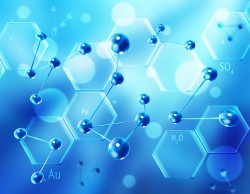Pool Chemicals Help Keep Your Backyard Swimming Pool Safe
 The purpose of pool chemicals is to remove potentially dangerous pathogens that can make their way into the water from the surrounding air, from swimmers’ clothing or bodies, or from a buildup of uncontrolled algae and other microorganisms.
The purpose of pool chemicals is to remove potentially dangerous pathogens that can make their way into the water from the surrounding air, from swimmers’ clothing or bodies, or from a buildup of uncontrolled algae and other microorganisms.
It’s important that your backyard swimming pool is serviced by qualified pool professionals. If your pool water has the wrong chemical balance, it can damage your pool and your pool equipment. Improperly balanced water also can irritate the eyes and skin of people using the pool. It can even cause your pool’s water to look cloudy.
What Pool Chemicals Do
Disinfecting agents are used to kill pathogens in the pool water. The most popular disinfectant is chlorine, a chemical compound derived from either calcium hypochlorite in its solid form, or sodium hypochlorite in its liquid form.
When either of these compounds is put into the water, the chlorine reacts with the water to form various healthy chemicals, the most important of which is hypochlorous acid, which kills bacteria and other pathogens. This chemical uses an oxidation reaction to attack the lipids in the cell walls and destroy the enzymes and structures inside the cell.
Another popular pool sanitizer, bromide, does essentially the same thing with slightly different results.
Application of Chemicals
Chlorine can be introduced into the water in either liquid, powder or tablet form. For larger pools — such as municipal pools or those at private clubs — a gaseous chlorine may sometimes be used.
While chlorine can be added at any time in the water’s cycle, most pool experts will add it as a chemical feeder just after the filtering process. In some instances, when chlorine tablets are added directly to the water via skimmer boxes, for example, it can become too concentrated in the areas closest to the boxes.
In some instances, when chlorine tablets are added directly to the water via skimmer boxes, for example, it can become too concentrated in the areas closest to the boxes. In these cases, the pool may be closed until the chemicals can properly distribute themselves throughout the water.





Comments